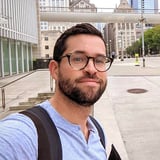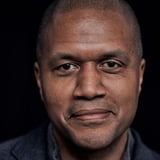Summary
If you look across all disciplines, the one person whose achievements got to the heart of a behavior in nature was the 20th century mathematician Emmy Noether. While geniuses in physics received accolades for figuring out conservation laws in physics, she went an extra step, and this was a step most people didn't even know was there. She figured out where conservation laws came from. In this presentation, we are going to look at where Emmy would fit in high tech today. Today, our world is filled with a plethora of templates, one day courses, agile and lean approaches, blogs on how to get "quick wins" and many other forms of content directly or indirectly trying to satisfy our appetite for speed in high tech. This is reflected in a desire to get to key takeaways or insights as quickly as possible. Many times, these "lean" approaches can be incredibly useful, but not always. Sometimes in the rush to answer or iterate, something fundamental is missed. Insights that could have been discovered with just a little more up front thought and formalism of the problem space. Asking one more "why" question. And asking it like the kick*ss 20th century mathematician Emmy Noether.
Key Insights
-
•
Emmy Noether solved a major problem in Einstein's theory by zooming out to understand broader system behavior rather than focusing narrowly.
-
•
Noether's breakthrough linked conservation laws to symmetries of nature, foundational for physics and mathematics.
-
•
Stepping back to see the whole system is critical for deep insight, as emphasized by Jennifer Fraser.
-
•
Bridging different disciplines—math and physics in Noether’s case—can lead to breakthroughs not possible within silos.
-
•
Ecosystem mapping visualizes relationships and exchanges between system components, making invisible connections visible.
-
•
Ecosystem maps differ from journey maps by focusing on system-wide relationships rather than sequential flows.
-
•
Co-creating ecosystem maps with stakeholders helps reveal overlooked roles and fosters alignment.
-
•
In a youth entrepreneurship program, ecosystem mapping revealed the crucial mentor role missing from existing support networks.
-
•
Every analyst or researcher builds models to understand systems, but models must be shared and challenged to improve.
-
•
UX research and data science often work in silos despite sharing the fundamental activity of modeling complex systems.
Notable Quotes
"Energy might not be conserved locally in a smaller patch of space but everything works out when the space is sufficiently large."
"Noether’s breakthrough came because she was able to step back from the problem at hand and look at the broader system."
"The bridge was made between math and physics in a way that hadn’t been done before."
"In our haste to get answers quickly, we often ignore what system we’re working within and why."
"Everything everyone knows is only a model. It’s important to get our models out there where they can be challenged."
"Visualizing the ecosystem helps get alignment among stakeholders and provides insights into strengths, weaknesses, and opportunities."
"An ecosystem map depicts relationships between animate and inanimate objects in a system representing value exchanges."
"Journey maps and service design blueprints focus on flows within parts of a system; ecosystem maps focus on relationships across the system."
"We are all just modeling. UX researchers and data scientists differ more in language than in practice."
"What system are you trying to understand and impact? What’s the bridge between different ways of modeling it?"
Or choose a question:
















More Videos

"We often say don’t make me think. When that’s not possible, reuse and recycle those learnings."
Sam ProulxOnline Shopping: Designing an Accessible Experience
June 7, 2023

"We built a career path to make evaluations as fair and consistent as possible across roles."
Ignacio MartinezFair and Effective Designer Evaluation
September 25, 2024

"Stakeholders saw design as a slow-moving black box — exactly what we were trying to move away from."
Sarah Kinkade Mariana Ortiz-ReyesDesign Management Models in the Face of Transformation
June 8, 2022

"Design is often framed as problem solving, but conversation is a better framework to respect users as active experts."
Daniel GloydWarming the User Experience: Lessons from America's first and most radical human-centered designers
May 9, 2024

"Those fishermen didn’t want political news—they wanted reliable weather forecasts to stay safe at sea."
Patrick BoehlerFishing for Real Needs: Reimagining Journalism Needs with AI
June 10, 2025

"With proper prompting, AI can get you really close to a deliverable summary, much closer than expected."
Andy Barraclough Betsy NelsonFrom Costly Complexity to Efficient Insights: Why UX Teams Are Switching To Voxpopme
September 23, 2024

"Many tech harms run counter to business goals and can be controversial to address."
Alexandra SchmidtWhy Ethics Can't Save Tech
November 18, 2022

"Please don’t implement the Spotify model. It works for them, it won’t work for you."
Louis RosenfeldDiscussion: What Operations can teach DesignOps
November 6, 2017

"We’re literally using AI to help AI build AI, including bias detection and correction in the process."
Mitchell BernsteinOrganizing Chaos: How IBM is Defining Design Systems with Sketch for an Ever-Changing AI Landscape
September 29, 2021
















